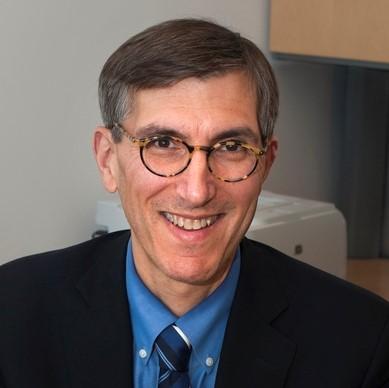The FDA's Peter Marks, M.D., Ph.D., thinks gene editing—specifically base editing—could be a "game changer," but progress has been slow, likely due to discouragement with the regulatory process.
Marks, head of the FDA’s Center for Biologics Evaluation and Research, acknowledged that there’s been a “backslide” in new gene therapy advancements as academic founders realized that their breakthrough lab findings had to fit into the larger pharma machine.
"People kind of woke up and realized, 'Oh, this is pharmaceutical development. There's a slog through here,'" Marks said in an interview with Fierce Biotech.

Things started out strong, giving these scientific founders hope that "they were gonna get over the finish line quickly,” Marks said. “And for various reasons, they didn’t make it there.”
This reality check fits within Marks larger concerns that the agency is simply not approving enough gene therapies, saying earlier this year that it would be a failure if the FDA only approved two to three a year moving forward. To try to ease the backlog, the FDA has so far revamped the Office of Therapeutic Products with more specialized offices and hired more reviewers to match. With more staff, Marks says you should expect to see the FDA “leaning into the policies here,” increasing and improving communications with drug sponsors.
“Unless we can increase the throughput of products through our process, we’re going to be lagging behind what gene therapy can potentially bring to patients,” he said.
The FDA just last month approved Roctavian, BioMarin's gene therapy to treat adults with bleeding disorder hemophilia A.
“Unless we can increase the throughput of products through our process, we’re going to be lagging behind what gene therapy can potentially bring to patients." — Peter Marks, FDA
One specific gene editing advancement that Marks is excited about is base editing. Boston Children’s Hospital describes the technology as “spell-check for genes,” a mechanism by which individual letters on a base pair in the genome can be changed to fix disease-causing mutations. It's one of the latest gene editing features to spawn from the Nobel Prize-winning CRISPR/Cas9 technology, uncovered by Jennifer Doudna, Ph.D., and Emmanuelle Charpentier, Ph.D.
“I think the possibility of genome editing, and particularly the concept of base editors … could be an incredible game changer, not just for rare diseases but more common disease,” Marks said. He couched the comment by saying the agency will need to keep a close eye on off-target effects saying “there’ll be a lot to be learned here.”
That sound you hear is likely Feng Zhang, Ph.D., and David Liu, Ph.D., clinking glasses in a Cambridge laboratory. The two scientists are at the forefront of base editing, having both co-founded gene editing biotech Beam Therapeutics and individually helped launch many others. One of Liu’s more recent ventures, Prime Medicine, also features base editing.
But this promising science has yet to translate into clinical breakthroughs. Beam's lead asset, BEAM-101, launched into a phase 1/2 trial more than a year ago, but the company has yet to announce dosing a single patient. Beam said earlier this year that it has a waitlist for enrollment. The biotech is also applying base editing to off-the-shelf cell therapies, specifically a treatment for two forms of leukemia that works by blocking CD7 expression. The treatment was placed under a clinical hold in the fall of 2022 that was lifted a few months later in December.
Another base editing company, Verve Therapeutics, has had its lead asset, VERVE-101, under clinical hold in the U.S. since November 2022. The company has continued to enroll patients in the U.K. and New Zealand and said in May that it was working on a response letter intended to be sent as “expeditiously as possible.” The asset was developed in partnership with Beam after Verve licensed mRNA tech from the latter to help execute base edits.